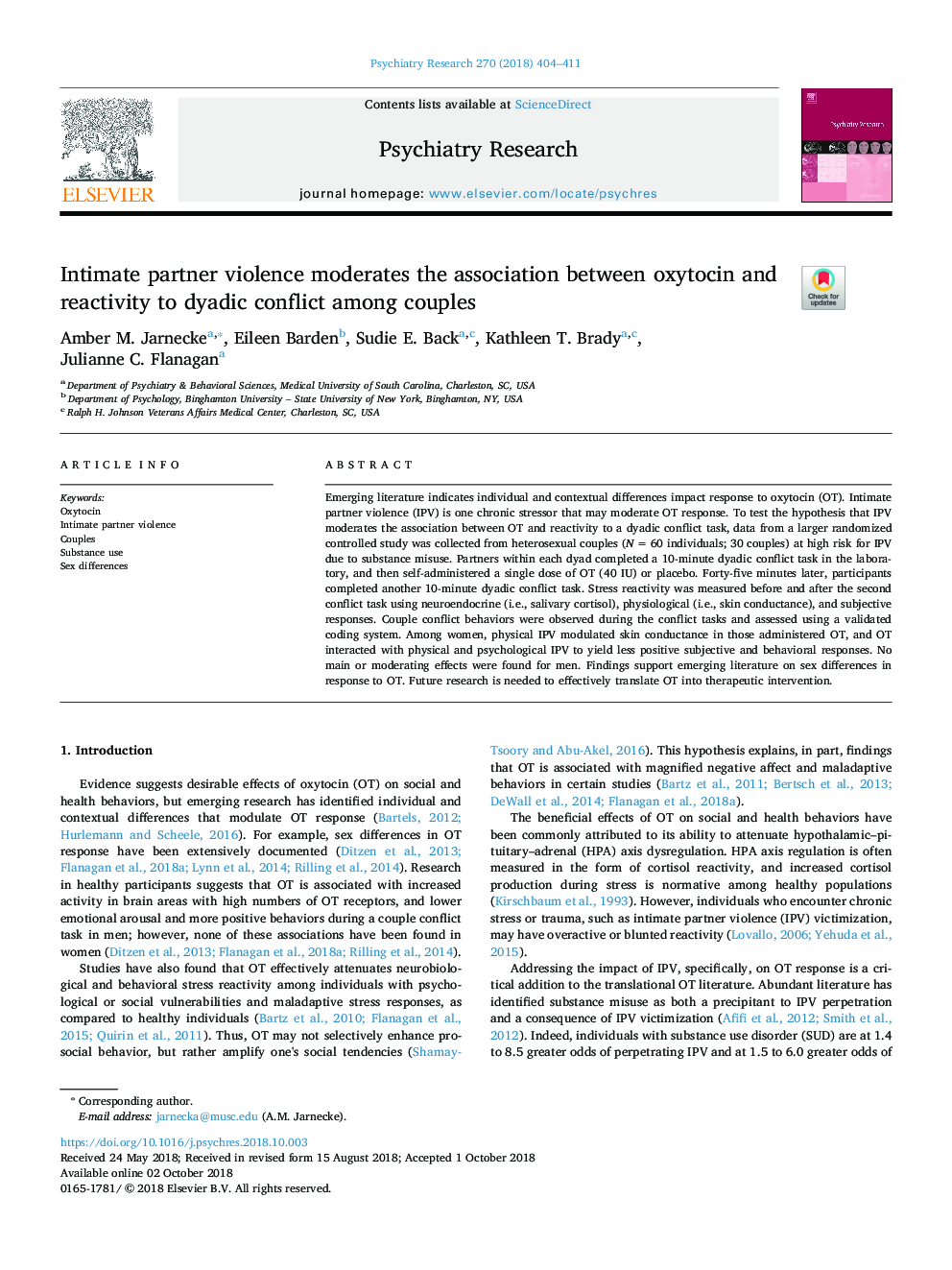| Article ID | Journal | Published Year | Pages | File Type |
|---|---|---|---|---|
| 11024104 | Psychiatry Research | 2018 | 8 Pages |
Abstract
Emerging literature indicates individual and contextual differences impact response to oxytocin (OT). Intimate partner violence (IPV) is one chronic stressor that may moderate OT response. To test the hypothesis that IPV moderates the association between OT and reactivity to a dyadic conflict task, data from a larger randomized controlled study was collected from heterosexual couples (Nâ¯=â¯60 individuals; 30 couples) at high risk for IPV due to substance misuse. Partners within each dyad completed a 10-minute dyadic conflict task in the laboratory, and then self-administered a single dose of OT (40 IU) or placebo. Forty-five minutes later, participants completed another 10-minute dyadic conflict task. Stress reactivity was measured before and after the second conflict task using neuroendocrine (i.e., salivary cortisol), physiological (i.e., skin conductance), and subjective responses. Couple conflict behaviors were observed during the conflict tasks and assessed using a validated coding system. Among women, physical IPV modulated skin conductance in those administered OT, and OT interacted with physical and psychological IPV to yield less positive subjective and behavioral responses. No main or moderating effects were found for men. Findings support emerging literature on sex differences in response to OT. Future research is needed to effectively translate OT into therapeutic intervention.
Related Topics
Life Sciences
Neuroscience
Biological Psychiatry
Authors
Amber M. Jarnecke, Eileen Barden, Sudie E. Back, Kathleen T. Brady, Julianne C. Flanagan,
